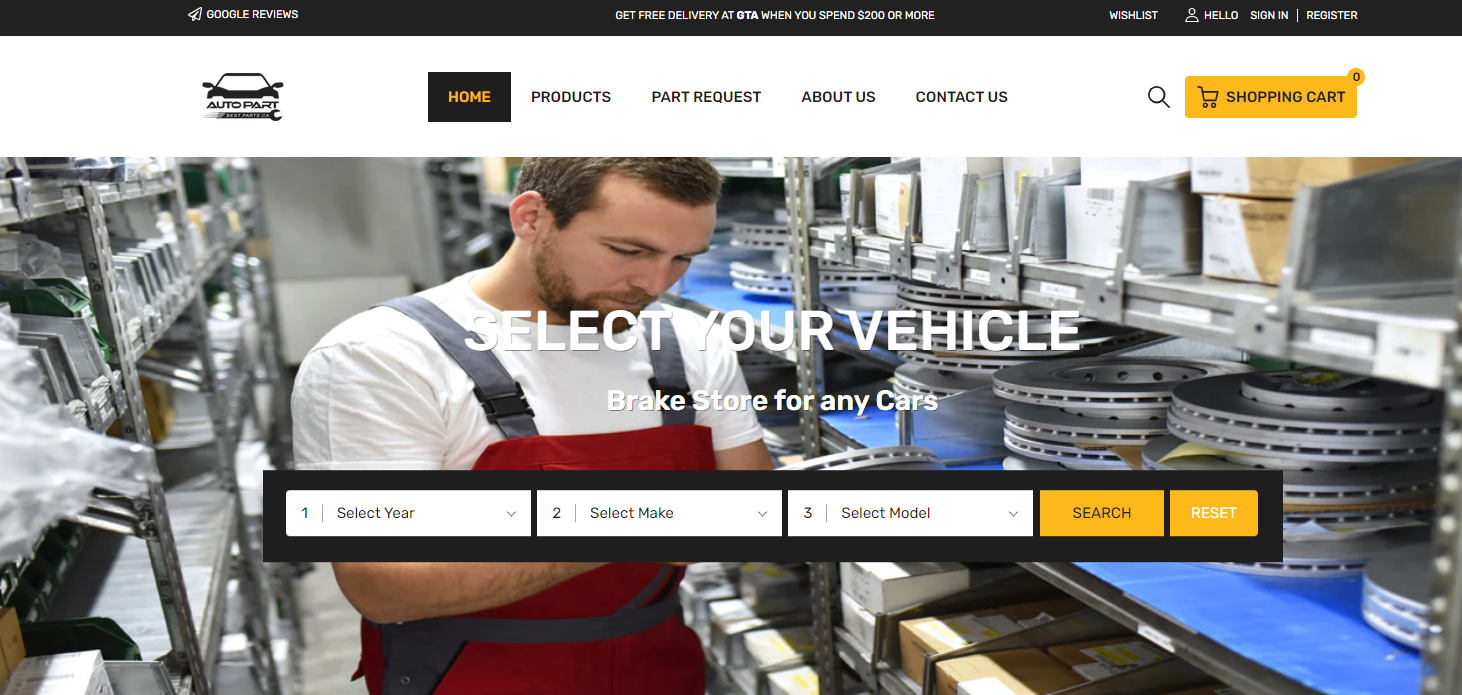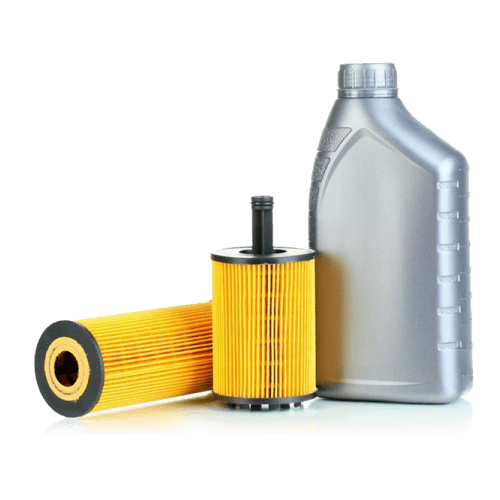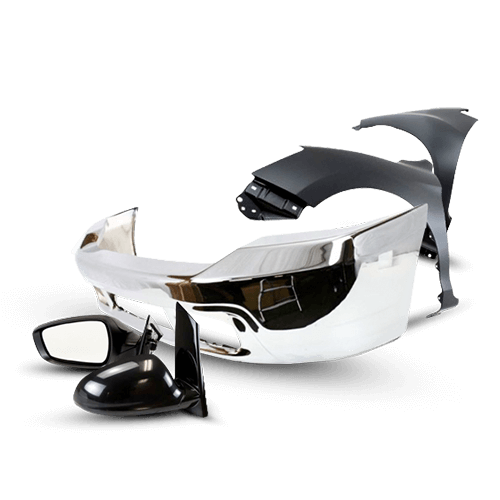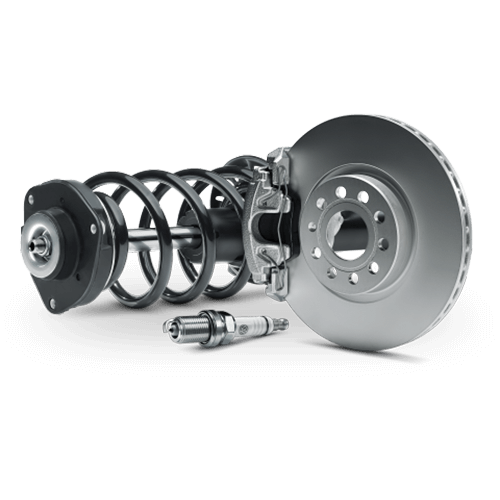
A comprehensive guide to maintaining car brakes
If you're a car owner, you probably know how crucial it is to ensure your vehicle's safety and performance. Among the various components that demand your attention, your car's braking system ranks at the top for ensuring both your safety and the well-being of your vehicle. In this extensive guide, we will take you through the intricate world of car brakes, elucidating their functionality, the critical components involved, and offering invaluable insights into maintaining car brakes. So, fasten your seatbelt as we embark on this journey to understand, care for, and maintain your car's brakes effectively.
How Do Brakes Work?
Brakes are a crucial component of your vehicle's safety system, responsible for slowing down and stopping your car when needed. Understanding how brakes work is fundamental to appreciating their role in keeping you safe on the road and maintaining car brakes effectively.
Before we dive into maintenance tips, it's essential to understand how your car's brakes work. The basic principle behind brakes is the conversion of kinetic energy (the energy of motion) into heat energy. When you press the brake pedal in your car, a complex hydraulic system is activated. This process involves several key components, including brake pads and calipers.

Brake Pads
Brake pads are one of the primary components responsible for stopping your car. When you press the brake pedal, hydraulic pressure forces the brake pads against the brake rotors. This friction generates heat and slows down your vehicle.
Calipers
Calipers play a crucial role in the braking system by squeezing the brake pads against the rotors. They are responsible for creating the necessary friction to stop your car effectively.
Do Not Overheat the Car Brake
Overheating brakes is a common mistake made by many drivers. Excessive braking, such as braking downhill or in stop-and-go traffic, can cause brake overheating. When brakes overheat, they lose effectiveness and can even fail. To avoid this, when descending steep hills, use heavier gears or the DAC (Downhill Assist Control) system instead of continuous hard braking.
read more: What Are Coated Brake Rotors and Their Benefits?
The Difference Between Car Brakes in the Past and Today
Modern car brakes have come a long way from their predecessors. In the past, drum brakes were commonly used, which had limitations in terms of performance and durability. Today, most cars are equipped with disc brakes, which offer better stopping power and are more resistant to overheating. When it comes to maintaining your brakes, understanding this difference is essential.

Be Sure to Change Your Brake Fluid
Brake fluid is a critical component of your braking system. Over time, brake fluid can become contaminated with moisture and debris, reducing its effectiveness. It's recommended to change your brake fluid every two years or as specified in your vehicle's maintenance manual. Fresh brake fluid ensures that your brakes operate at their best.
Signs of Brake Replacement
Recognizing the signs that your brakes need to be replaced is critical for your safety and the performance of your vehicle, as well as for maintaining car brakes effectively. Here are some common warning signs to look out for:
Reduced Brake Performance
If your car takes longer to come to a complete stop or you have to apply more pressure to the brake pedal, it's a sign that your brakes aren't working properly. This could be due to worn brake pads, damaged rotors, or other problems with the brake system.
Dashboard Warning Light
Many modern vehicles are equipped with a dashboard warning light that specifically indicates brake system problems. If this light illuminates, it's essential to have your brakes inspected by a professional as soon as possible.

Visible Wear
Sometimes, you can visually inspect your brake pads through the spokes of your wheel. If the pad material is less than a quarter-inch thick, it's time for replacement. Additionally, if you notice any unusual wear patterns or uneven pad wear, it's a sign that there may be an issue with your braking system that needs attention.
Brake Fluid Leaks
Check for any signs of brake fluid leaks around the wheels or brake lines. Leaking brake fluid can compromise your braking system's effectiveness and safety.
Unusual Noises While Driving
If you hear grinding noises when you're not applying the brakes, it could indicate that the brake pads are excessively worn, and the metal backing is coming into contact with the rotors. This is a serious issue that requires immediate attention.

Squeaking or Squealing Noises
If you hear high-pitched squeaking or squealing noises when you apply the brakes, it's often a clear sign that your brake pads have worn down to the point where they need replacement. Brake pads come equipped with a built-in indicator that creates this noise to alert you when it's time for a change.
Vibrations
When you feel vibrations in the steering wheel or brake pedal while braking, it could be an indication of warped brake rotors. Warped rotors can affect the even distribution of braking force and should be addressed promptly.
It is critical not to dismiss any of these warning signs. Addressing brake problems as soon as possible can save you money in the long run and, most importantly, ensure your safety while driving. If you notice any of these symptoms, you should have your brakes inspected by a qualified mechanic to determine the best course of action, which could include brake pad replacement or other necessary repairs.

Take Good Care of Your Brakes
Proper car brake maintenance not only ensures your safety but also contributes to the longevity and performance of your vehicle. Here are some more maintenance suggestions:
- Avoid Hard Braking: Reduce wear and tear by anticipating stops and applying gradual pressure to the brake pedal.
- Use High-Quality Parts: When it comes to brake components like pads and rotors, choose high-quality parts from reputable manufacturers. Quality components typically last longer and perform better.
- Keep Your Wheels Clean: Dirt and debris can accumulate on your brake components, affecting performance. Regularly clean your wheels and brake parts.
- Professional Inspections: Schedule regular brake inspections with a qualified mechanic or at your vehicle's recommended service intervals. A professional can identify issues you might miss and perform necessary maintenance or repairs.
- Inspect Regularly: Periodically inspect your brakes for signs of wear, leaks, or damage.
- Drive Cautiously: Defensive driving practices, such as maintaining a safe following distance and avoiding tailgating, can reduce the need for sudden and aggressive braking, preserving your brakes and enhancing safety.
Have a Maintenance Schedule for Your Car's Brakes
Making a maintenance schedule is a great way to stay on top of your brake maintenance. Keep in mind the last time you changed your brake fluid, replaced your brake pads, or had a professional inspection. Regular maintenance can help you save money in the long run by avoiding more costly brake system repairs.

Conclusion
Your car's brakes are an important safety feature, and their upkeep should not be overlooked. You can ensure your brakes perform optimally by understanding how they work, avoiding overheating, changing brake fluid, recognizing signs of replacement, and adhering to a maintenance schedule, all of which are crucial for maintaining car brakes. Remember that maintaining your brakes not only keeps you safe but also extends the life of your vehicle.
In the final conclusion of this article, it's worth noting that you have the option to purchase all the components of your brake system conveniently online from the Best Part store. Best Part offers top-quality parts from the finest manufacturers available in the market. You can easily browse their online store to find and purchase the specific parts you need, ensuring that your vehicle's brake system is equipped with the best-quality components for optimal performance and safety.
FAQ
- How often should I change my brake fluid?
Brake fluid should be changed every two years or as specified in your vehicle's maintenance manual.
- What causes squeaking brakes?
Squeaking brakes are often a sign of worn brake pads that need replacement.
- Can I replace my brake pads myself?
While some car owners can replace brake pads themselves, it's recommended to have this done by a professional mechanic for safety and effectiveness.
- How can I prevent brake overheating?
To prevent brake overheating, avoid excessive braking, especially when descending steep hills.
- Why are modern disc brakes better than drum brakes?
Disc brakes outperform drum brakes in terms of stopping power and resistance to overheating, making them the preferred choice in modern vehicles.























































